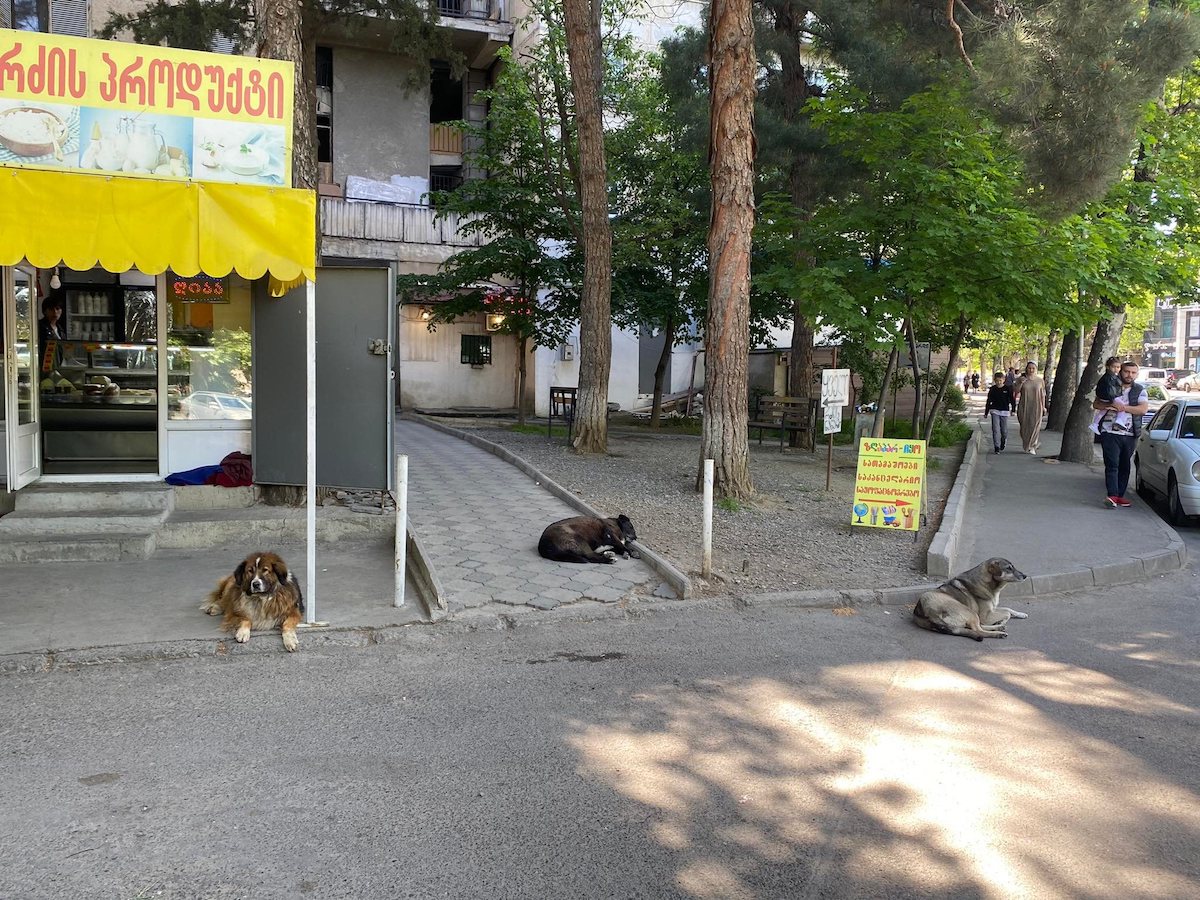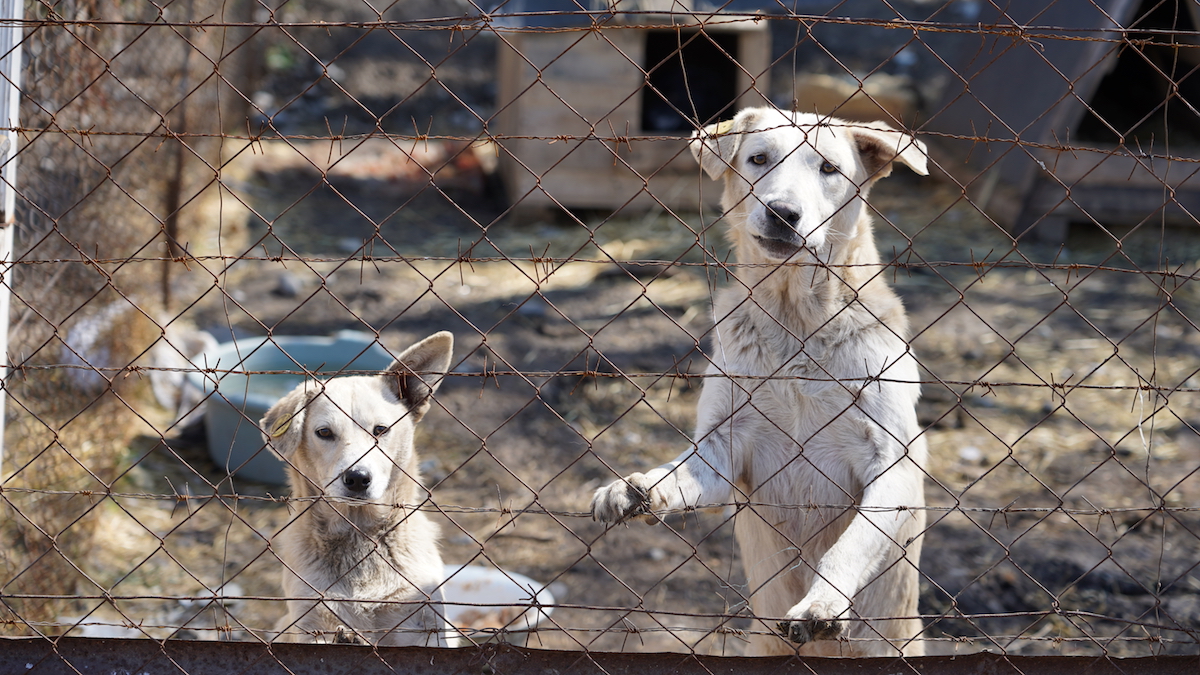The regulations governing pet ownership are becoming more stringent in Georgia
Pets in Georgia
Regulations regarding the ownership and care of dogs and cats are tightening in Georgia, with a corresponding bill already registered in parliament. The parliamentary committee on environmental protection spearheads the initiative.
The proponents of the bill assert that the proposed amendments are rooted in contemporary and well-established methods for the care of domestic animals and the management of their populations.
The new legislation covers aspects such as safeguarding pets from cruelty and euthanasia, as well as regulating breeding, buying, and selling practices. Additionally, it introduces new standards for their care. Stringent sanctions will be enforced against violators of these regulations.
Animal enthusiasts and experts observe that, while acknowledging certain deficiencies and inaccuracies, overall the bill is geared towards animal welfare and represents a positive stride in this regard.
We will elucidate the specific contents of the bill.
The responsibilities of a dog or cat owner include:
- Registering the animal. Failure to comply with this regulation will result in a fine of 1,000 lari [approximately $377].
- Ensuring that the animal undergoes compulsory annual vaccination and veterinary examination. A fine of GEL 1,000 is applicable for non-compliance with this requirement.
- Reporting to the municipality in the event of the animal being lost or deceased.
- Taking responsibility for any harm caused by the animal to another individual and compensating for the damages incurred.
● Breeding mixed-breed animals, i.e., crossing different breeds, is prohibited.
● Residents of apartment buildings are permitted to own only three pets, with the allowance of a fourth or more contingent upon the consent of their neighbors. However, kittens and puppies under two months old are exempt from this restriction.
For owners of high-risk dog breeds:
The bill enumerates 30 dog breeds classified as high-risk, including shepherd dogs, Dobermans, and others.
-
Full list of high-risk breeds
1. American Pit Bull Terrier;
2. Cane Corso;
3. Doberman;
4. Fila Brasileiro;
5. Bull Terrier;
6. American Staffordshire Terrier;
7. Argentine Mastiff;
8. Tosa Inu;
9. American Bulldog;
10. Kangal;
11. Caucasian Shepherd;
12. Central Asian Shepherd Dog;
13. East European Shepherd;
14. Greek Shepherd;
15. Crash Shepherd;
16. German Shepherd;
17. Romanian Shepherd;
18. Mastiff;
19. Dogue de Bordeaux;
20. Dogo Canario;
21. Rottweiler;
22. Giant Schnauzer;
23. Leonberger;
24. Marema;
25. Moscow watchdog;
26. Ca-de-bo (Majorcan Mastiff);
27. Staffordshire Bull Terrier;
28. Bandog;
29. Guldong;
30. Wolfdog (hybrid of dog and wolf).
● These dog breeds necessitate separate registration.
● Individuals under 18 years of age are barred from owning or even walking high-risk breeds of dogs.
● Training these dog breeds for combat purposes (excluding functional dogs owned by government agencies) is forbidden.
● Individuals who own or plan to own a dog of a high-risk breed must furnish additional documentation to the municipality, including a certificate demonstrating completion of a course in proper training and care of the animal, a criminal record certificate, and a certificate from a drug treatment clinic.
Rules for veterinary clinics:
● It is prohibited to carry out operations in veterinary clinics that lack a medical purpose. These include procedures such as ear and tail docking, declawing, vocal cord cutting, etc. If such an operation results in the death or serious injury of the animal, the penalties may include a fine, community service lasting from 60 to 100 hours, or house arrest for up to six months.
Rules for shelters:
- Shelters must adhere to sanitary and hygienic standards.
- The rooms housing animals must have suitable lighting and temperature control.
- Enclosures must be designed to allow animals to move freely and have an unobstructed view.
Rules for municipalities:
- The law assigns responsibility to municipalities for managing the population of stray dogs.
- Municipalities are mandated to capture stray animals, perform neutering/spaying procedures, administer vaccinations, and register them in the databases.
Purchase and sale of animals/breeding/castration/euthanasia:
- Selling unregistered animals is prohibited.
- Only licensed breeders are authorized to breed animals.
- Animals cannot be separated from their mothers before the age of two months.
- Reproducing mixed-breed animals is prohibited, except in cases of selection.
- Breeding animals that are not identified and registered in a single database, breeding animals with genetic diseases, and using a female to produce offspring more than once a year are prohibited.
- Sterilization of female animals is permissible from the age of four months, and castration of males from one year. However, sterilization or castration of an animal after the age of eight is not permitted.
- The procedure for euthanasia (also known as euthanization) of an animal can only be carried out with a veterinarian’s assessment and under their supervision. Throughout the euthanasia process, the animal should not experience physical pain.
- Euthanasia is considered if: the animal displays aggressive behavior that cannot be altered; there is suspicion of rabies infection; a disease harmful to both animals and humans is detected; or there is an injury deemed incompatible with life.
The Parliament has also introduced amendments to the criminal code, which establish new principles of liability for acts of cruelty to animals.
Cruelty to animals encompasses:
- Consistently tethering the animal.
- Physical abuse.
- Deliberately colliding with the animal using a vehicle or any other form of transportation.
- Inflicting physical distress on the animal that causes suffering.
- Utilizing domestic animals for various scientific experiments or conducting laboratory research on them.
- Organizing, participating in, or promoting animal fights.
Furthermore, the current criminal penalties for subjecting animals to torture and cruel treatment resulting in mutilation are being strengthened. Such offenses will be punishable by a fine, house arrest, or imprisonment for a term of 18 months to two years. In cases where the animal dies as a result, the perpetrator may face imprisonment for two to four years.
Where can you walk your pet?
- In open spaces such as parks, squares, etc., dogs must be walked on a leash.
- Pets are strictly prohibited in kindergartens, schools, universities, grocery stores, pharmacies, hospitals, playgrounds, and sports grounds.
- On the subway and other forms of public transport, dogs must be transported on a leash, while cats must be transported in carriers.
-
Amounts of fines for different types of violations
For violation of vaccination or other treatment and prophylactic rules – 100 lari [approximately $38];
For failure to register a dog from a “risk group” – 200 GEL [approximately $75];
If the mixed-breed animal is not sterilized/neutered – 300 GEL [approximately $113];
In case of obstruction of the transportation of a sick animal for vaccination – 300 lari [approximately $113];
If a pet caused harm to another animal or person – 500 GEL [approximately $189];
For abandoning an animal – 3,000 GEL (in the case of a legal entity – 5,000) [approximately $1,100 and $1,880 respectively];
Keeping an animal in an educational institution – 50 GEL [approximately $19];
Allowing a dog to stay in an open space without a collar and leash – 150 GEL (for a dog of a high-risk breed – 300 GEL) [approximately $57 and $113, respectively];
Transporting a pet by public transport in violation of the rules – 150 GEL (for a dog of a high-risk breed – 300 GEL) [approximately $57 and $113, respectively];
Breeding dogs younger than 18 months or older than eight years – 200 GEL (for a legal entity – 500 GEL) [approximately $75 and $189 respectively];
Breeding animals without a health and breed certificate – 500 GEL (for a legal entity – 1,000 GEL) [approximately $189 and $377, respectively];
For crossbreeding animals – 500 GEL (for a legal entity – 1,000 GEL) [approximately $189 and $377, respectively];
Breeding animals without the required license – 1,000 GEL (for a legal entity – 2,000 GEL) [approximately $377 and $755, respectively];
For violating the euthanasia rule – 500 lari [approximately $189].




















